The future of music production is here, my friends — and hate it or love it, it includes AI (artificial intelligence) in a major way.
As producers, knowing all about exactly how AI is changing the music industry is going to be key to staying on top.
Otherwise, you’ll get left behind, not bang out professional-grade music, and maybe even not be able to keep up with demand, and nobody wants that.
That’s why I’m breaking down everything you need to know, like:
- AI in music production for melodies, chords, and hooks ✓
- Tools that help you produce music faster and better ✓
- How AI-generated music is shaping streaming platforms ✓
- AI tools for vocals, lyrics, and tuning ✓
- Mixing & mastering with AI-powered plugins ✓
- Music generators that beat writer’s block in seconds ✓
- AI technology in the music business and distribution ✓
- How AI algorithms predict what people want to hear ✓
- Ethical concerns around AI-generated content/music creation ✓
- Pro tips, tricks, and techniques throughout ✓
- Much more about how AI is changing the music industry ✓
By knowing all of this super important information, you’ll be able to make much better choices when you create and fine-tune your workflow.
Plus you’ll be able to completely leave your competition in the dust.
It’ll help you distribute music the smart way, target audiences more effectively, and successfully craft professional-grade music at scale.
This way, you won’t have to worry about AI replacing you — or being behind while other artists and producers blow up with way less effort.
Table of Contents
How AI is Changing the Music Industry: Breaking it Down
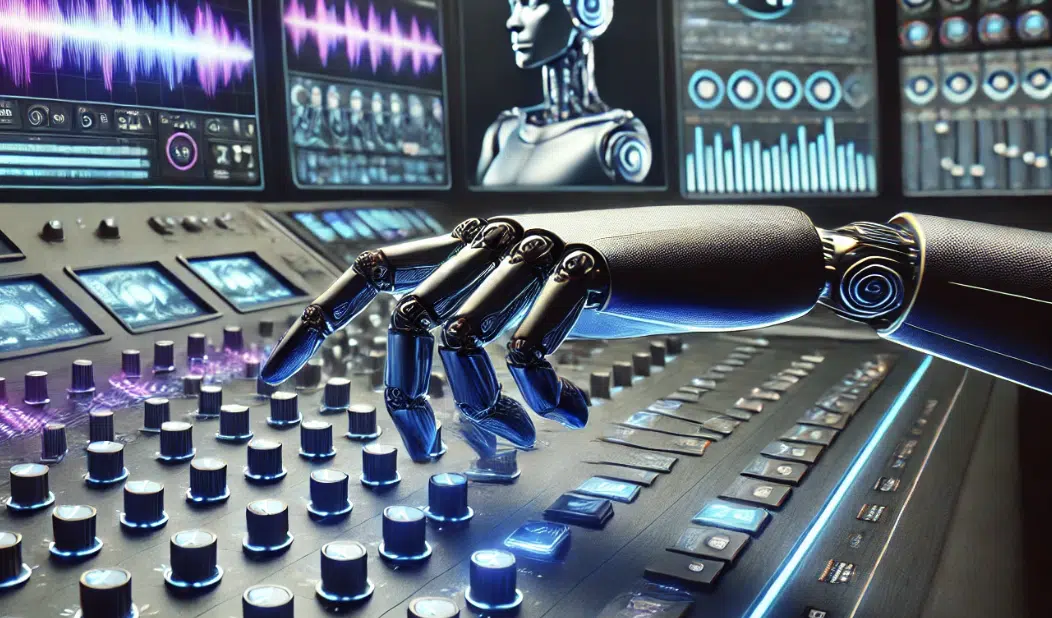
Let’s be real: AI is completely transforming the music industry right now, and it’s not just sitting in the background doing small tasks anymore.
AI in music production is front and center when it comes to how you create, tweak, refine, market, promote, and even distribute music.
Whether it’s AI-generated music showing up on major playlists or smart plugins that help you finish your tracks faster, AI is now a major part of the entire process.
Streaming services are leaning heavily on AI algorithms to read listening habits and decide which tracks get recommended.
This means the way your music gets discovered is changing fast.
On top of that, AI-generated vocals, beats, lyrics, and melodies are starting to sound incredibly realistic (many artists/producers are already using them to stay ahead).
Also, machine learning is now embedded into music generators, mixing assistants, and creative tools, which helps some people speed up their workflow.
Other people, who don’t take advantage of it, ultimately get replaced unfortunately 一 no one is saying this is fair, but it’s true, and you don’t want to be one of those people.
It also helps enhance your creative process by suggesting new ideas you might not have thought of on your own, which is another major plus.
And the crazy part? That’s just the surface.
Don’t worry if it sounds a little confusing or overwhelming right now, because I’ll be breaking down everything you need to know about how AI is changing the music industry.
Types of AI Plugins That You Should Get Familiar With
Now that we’ve got a solid understanding of how AI is changing the music industry, it’s time to get down to the nitty gritty. Remember, AI is built to help with just about every part of AI music production/music creation, from writing melodies to finalizing mixes. So, let’s break down the main categories you’ll want to start experimenting with in your sessions.
-
Melody, Harmony & Chord Generation
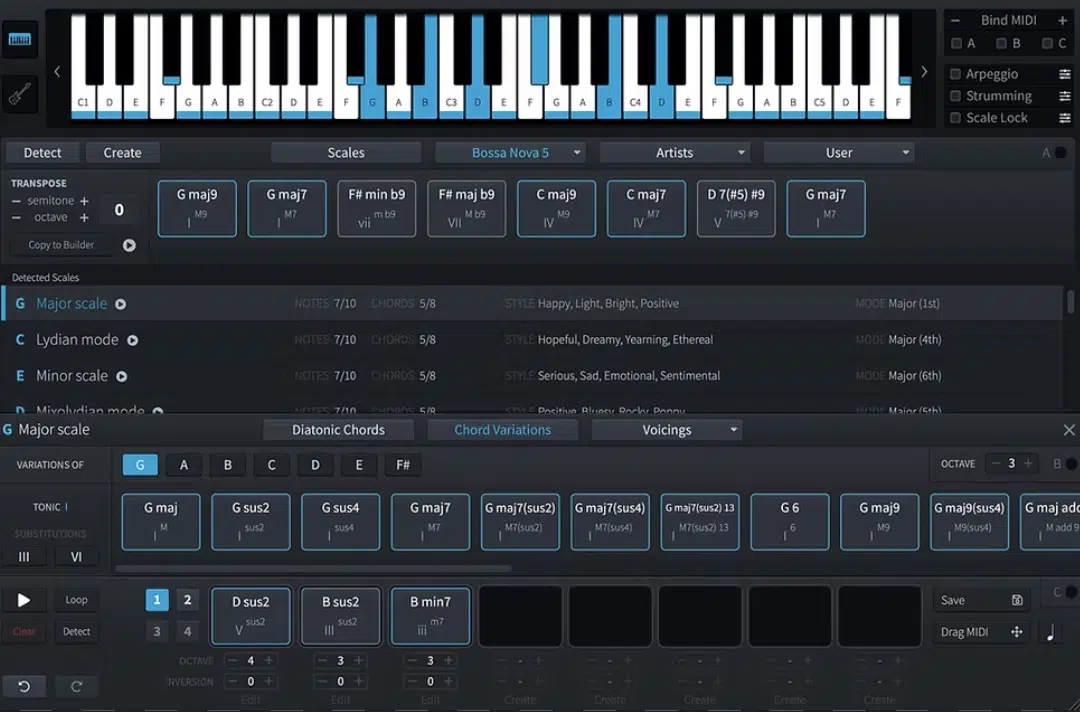
One of the most obvious ways AI is changing the music industry is through melody and chord generation.
Instead of spending hours trying to figure out which chords hit the right mood or which melody line will carry the hook, these AI-powered plugins can suggest ideas based on:
- Key
- Scale
- Genre
- Vibe
- Etc.
For example, if you’re working on a sad pop ballad, you can select a minor scale and get a series of emotionally charged chord progressions to choose from.
Or if you’re doing something more upbeat like house or dancehall, you can lock into major scales and syncopated rhythms that feel right for the genre.
These plugins don’t just throw out random ideas…
A lot of them use machine learning models that were trained on thousands of professional-grade songs across any genre you could imagine.
That means the ideas you’re getting are grounded in real-world examples, which will help your song structure stay on point and professional.
Another powerful part is how AI can give you slight harmonic variations of what you’re already working with.
If you have a simple four-chord loop, it might suggest an alternate version with added sevenths or inverted chords to bring some movement without losing the vibe.
That’s a huge plus when you want to add depth but don’t want to rewrite the whole thing (can you say time-saver?).
And, if you’re feeling stuck or dealing with beat block/writer’s block and it’s going to kill your session, using melody generators can help give you a super solid start.
Personally, this helps me get inspired and I’m sure it could do the same for you.
Bottom line, with how AI is changing the music industry, being able to access harmonic content this fast can really give you an edge when you’re trying to create something fresh under pressure.
Whether you’re building from scratch or looking to layer something over a beat, these tools help you focus on creating instead of overthinking theory.
That’s a game-changer for both beginners and professionals alike, hands down.
-
Drums, Basslines & Groove Automation
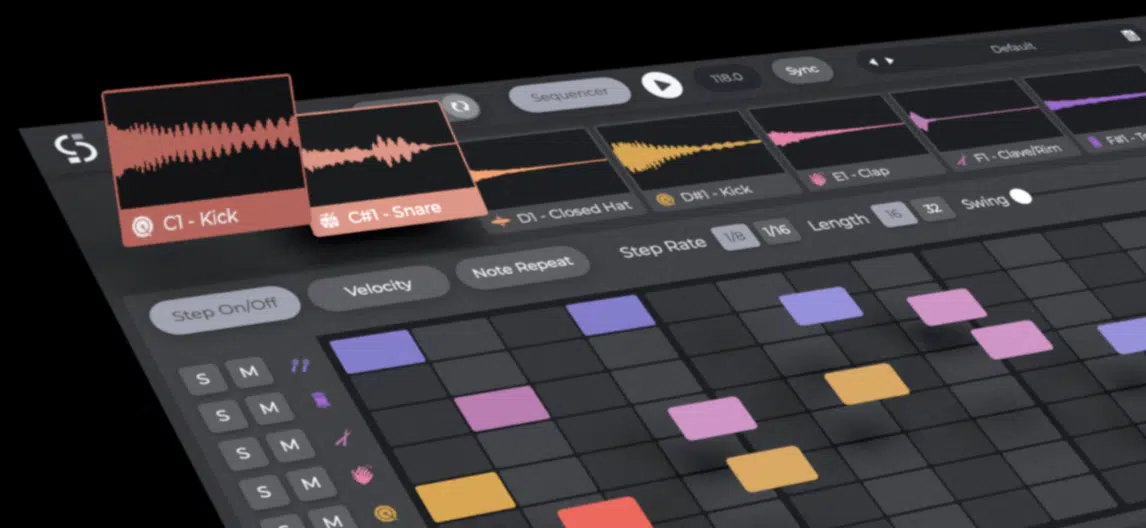
Drums are the foundation of almost every track, and now AI is stepping in to help producers like you lock in grooves faster than ever.
This is one of the clearest examples of how AI is changing the music industry especially when it comes to laying down beats that already feel dialed-in and genre-specific.
Let’s say you’re making a drill beat and you want it to be sick…
Instead of manually building those complex hi-hat rolls, snare delays, and stuttered kicks from scratch, AI can lay out a full 8-bar loop that captures the perfect bounce.
You still have full control over the rhythm, but you’re starting from something that is proven to already work, so you’re saving time without losing that personal touch.
Also, if you’re working in trap, boom bap, or even something more electronic like DnB, you can choose templates that reflect the feel you want.
Not to mention these AI rhythm tools don’t just follow grid patterns 一 they adjust swing, shuffle, and velocity to give the groove a more human feel.
And you can still tweak each element if you want it tighter or looser because human creativity is a big part of what makes tracks emotionally on point.
Same goes for basslines, so if you’ve already got a chord progression in place, AI plugins can listen to that and suggest a bassline that fits rhythmically/harmonically.
This helps you avoid the clash between kick and bass that can ruin low-end clarity.
I suggest you generate a few variations and choose the one that hits the hardest for added movement, depth, and intrigue (that’s the beauty of AI music if you ask me).
There’s also groove automation now that lets you shift timing ever so slightly, kind of like manually adjusting MIDI note positions, but smarter.
You can tell the plugin to humanize the hi-hats or push the snares back a few milliseconds to create a laid-back feel.
That subtle groove shaping can make a huge difference in how your track feels.
All-in-all, AI-driven rhythm plugins/tools are a perfect example of how AI is changing the music industry when it comes to speeding up music generation without sacrificing feel or quality, which you always want.
Just remember that it’s not about completely replacing your style… It’s about getting to it quicker and staying on top.
-
Mixing & Mastering Assistants For Max Impact
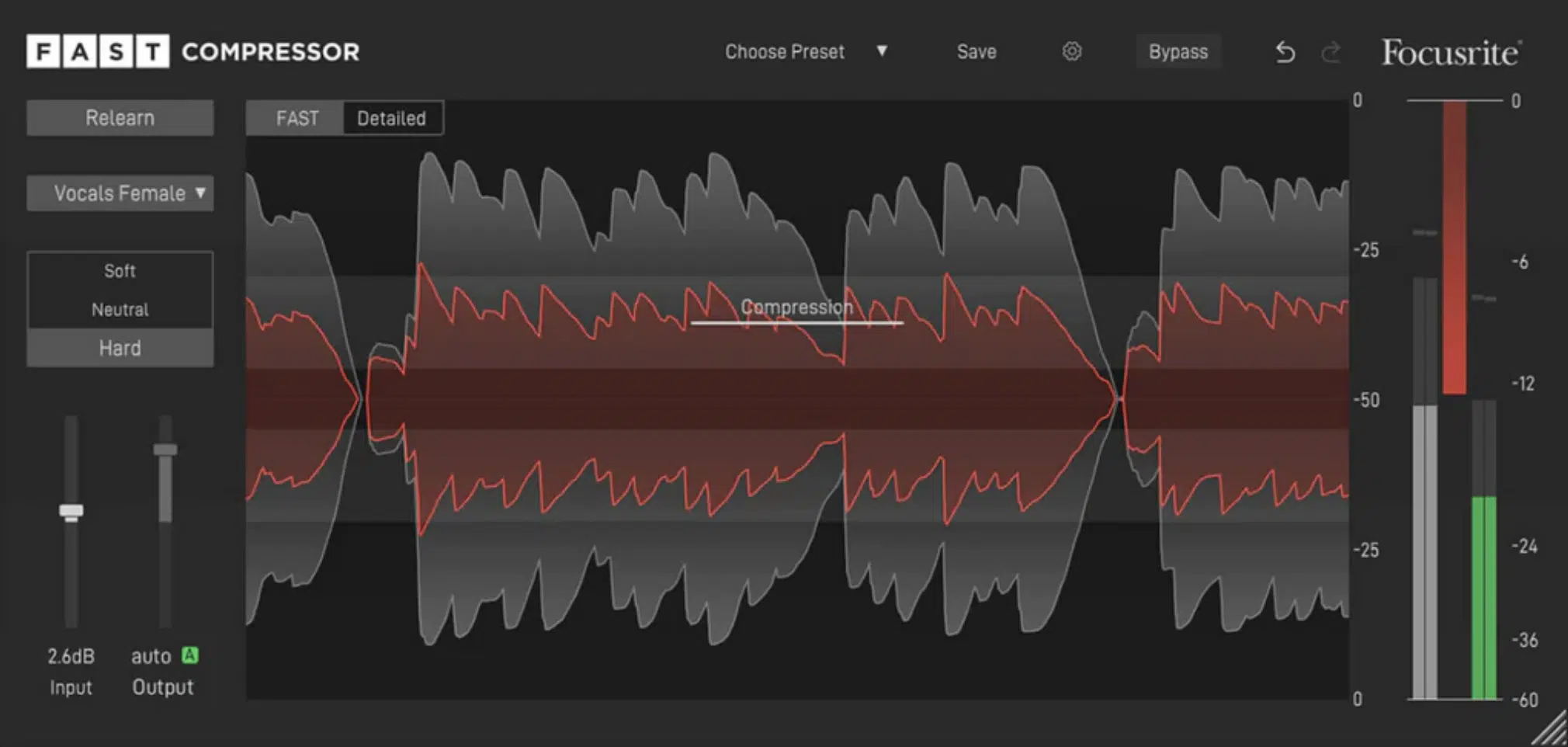
Ahh, mixing and mastering… the area where I see many producers completely tank.
Luckily, AI tools are all about easing up this process without eliminating your human touch or killing the creative vibe.
There are AI-driven plugins that can automatically balance levels, apply EQ based on tonal balance, and compress your tracks according to genre-specific threshold.
It can even help you enhance stereo width or loudness to match streaming platform standards, which is super important.
If you drag and drop your stems into an AI-powered mastering assistant, it can:
- Detect dynamic range issues
- Make real-time adjustments
- Give you a polished, pro-level sound in minutes
No second-guessing settings or referencing ten other tracks to get things perfect 一 just throw it in, and you’ve got all the answers you’ll need.
One great way to use these tools is to get a solid first pass, then make your own final tweaks so your style still shines through while benefiting from the AI’s technical foundation.
Remember, AI in music production doesn’t mean giving up control…
It just gives you a smarter starting point that gets you 80% there faster, which is huge when you’re pushing out multiple songs or beats each week.
This whole area is another clear example of how AI is changing the music industry, because it’s opening up high-level mixing and mastering to producers at every level.
Whether you’re working in a bedroom setup or a treated studio, AI in music can really help you get the job done.
The Best AI Plugins in the Music Industry
Now that we’ve talked about how specific plugins can help you stay ahead, I figured I’d share the absolute best AI plugins in the game.
These plugins don’t just make things easier.
They actually improve the quality of your tracks while speeding up your workflow, which is exactly what you want when you’re working on beats, loops, or full songs.
#1. MIDI Wizard 2.0
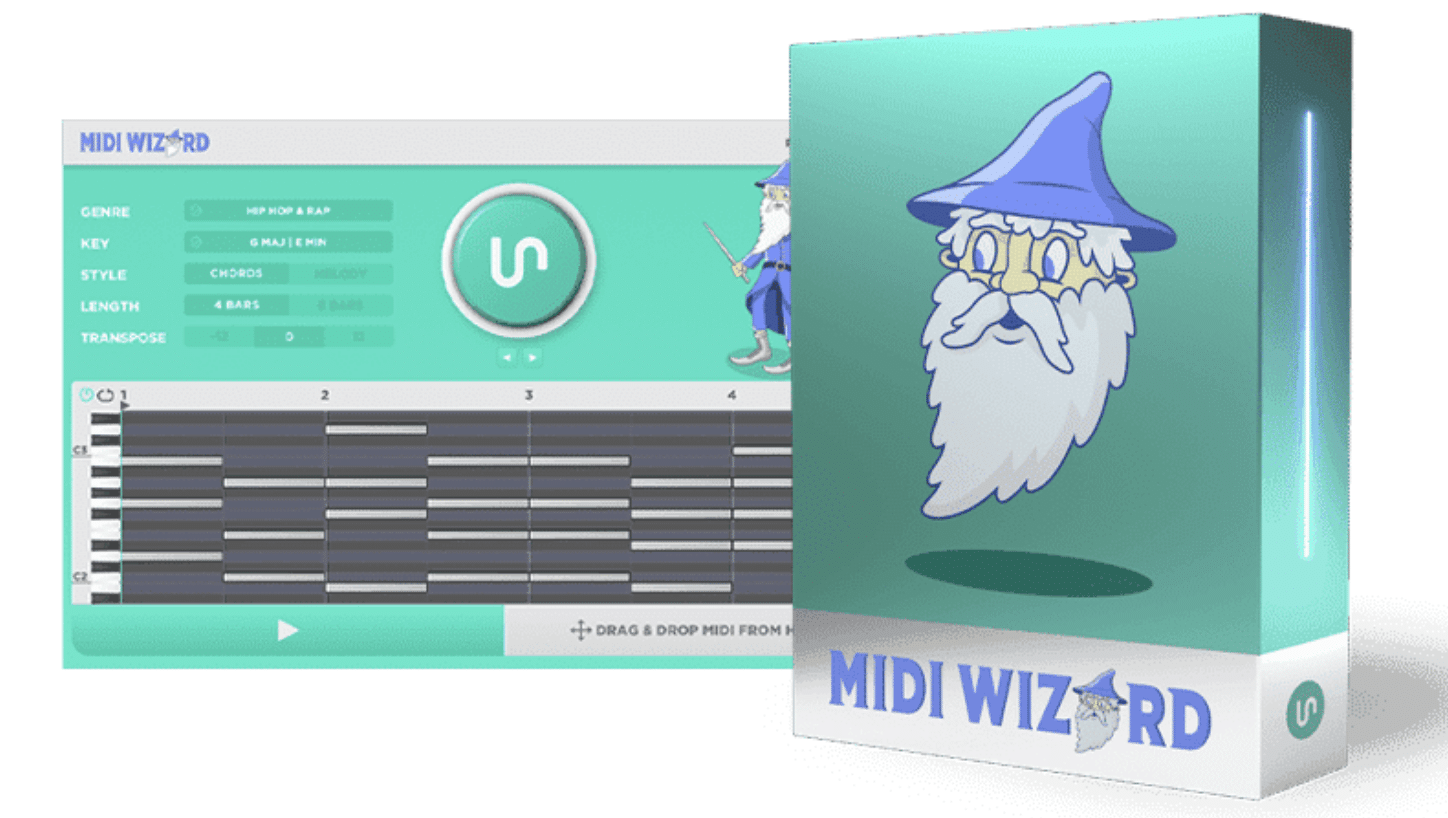
MIDI Wizard 2.0 helps you generate chord progressions, melodies, and basslines across 32 different genres.
You just pick a style and vibe, and it gives you musical ideas that are ready to drop into your project.
It’s perfect when you’re stuck or need something quick to build off — especially when your creative process needs a boost.
#2. Drum Monkey
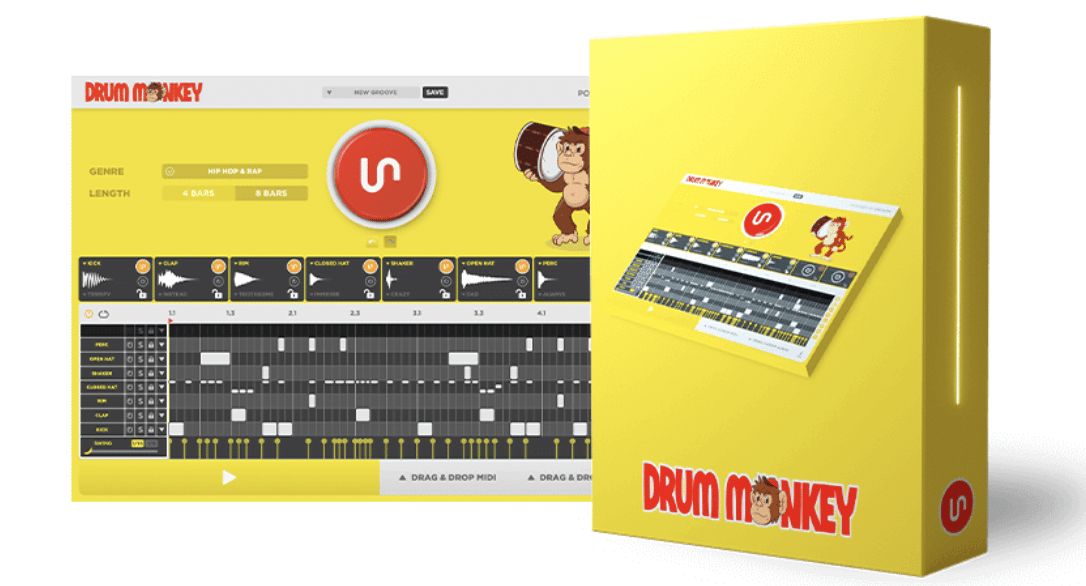
Drum Monkey generates full drum patterns, grooves, and fills based on your chosen genre, tempo, and swing.
And no, it’s not random 一 It’s trained on thousands of industry-standard drum loops, so what you get sounds like something you’d actually hear in a finished track.
Just drag and drop it into your session, and you’re off to a solid start.
#3. Bass Dragon
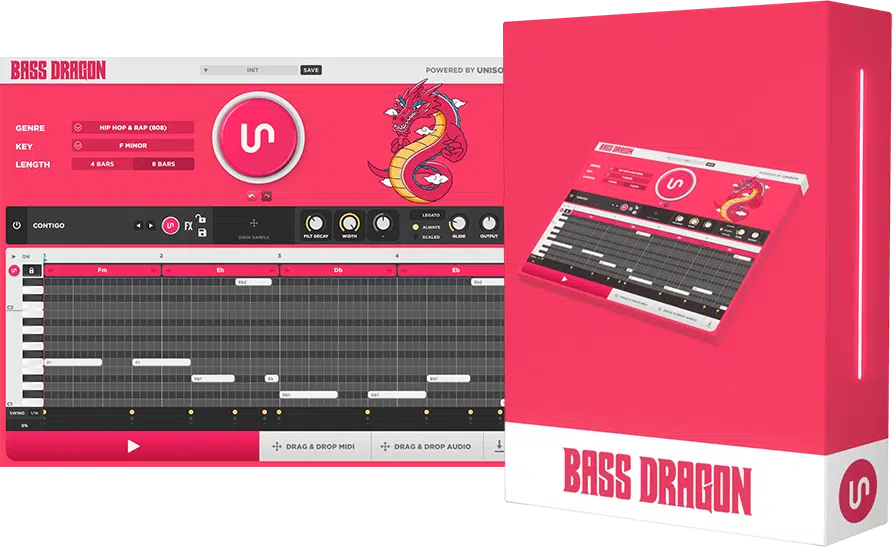
If you struggle with getting the bass right, Bass Dragon is a game-changer that uses AI to generate clean, punchy basslines that match your track’s key and rhythm.
You can customize the groove, energy, and even the harmonic interaction with your drums and melody, which helps you avoid clashing low-end issues.
#4. 808 Machine
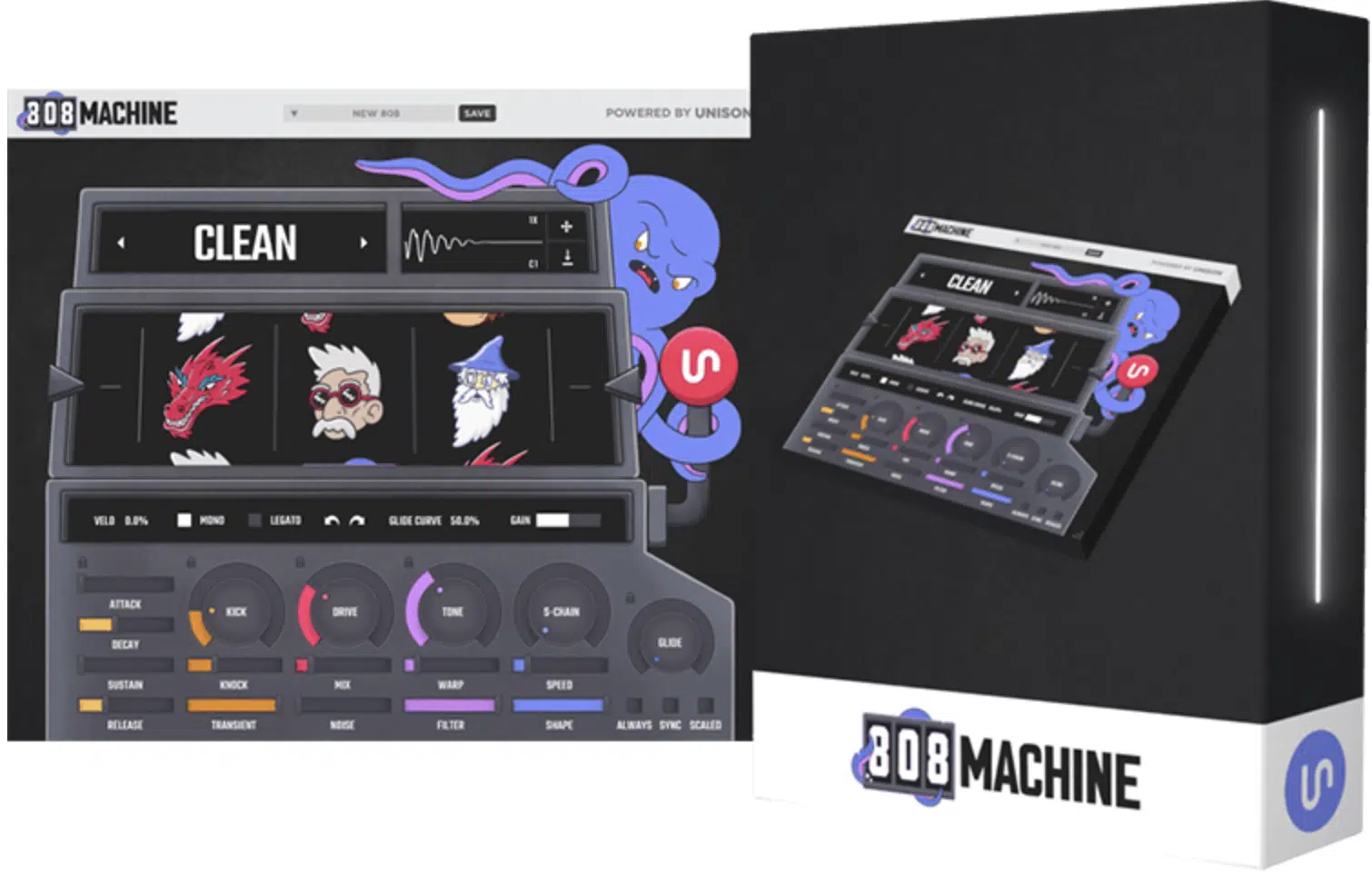
808 Machine is all about top genres like trap, drill, and overall hard-hitting beats as it lets you generate and manipulate 808s that match the key and vibe of your beat.
Plus, you even get control over distortion, pitch glide, envelope shaping, and saturation so your subs knock but still sit tight in the mix.
#5. Zen Master (free)
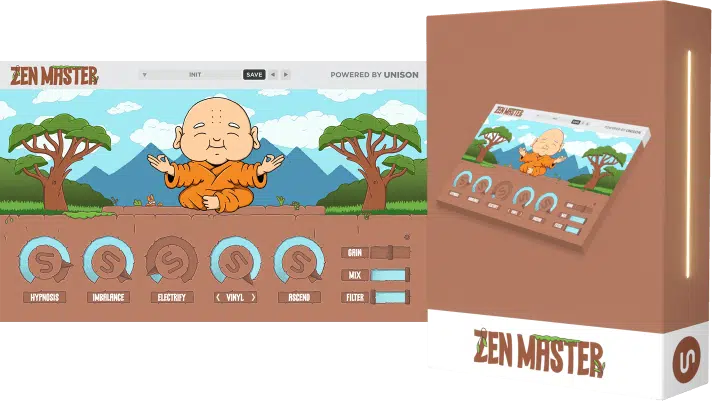
Zen Master is one of the most loved and respected free lo-fi plugins in the game, instantly adding that dreamy, vintage textures to your sounds that people love.
Whether you’re working on chill beats, boom bap, or background music, it gives you that nostalgic vibe with saturation, wobble, and character built right in.
#6. Sound Doctor
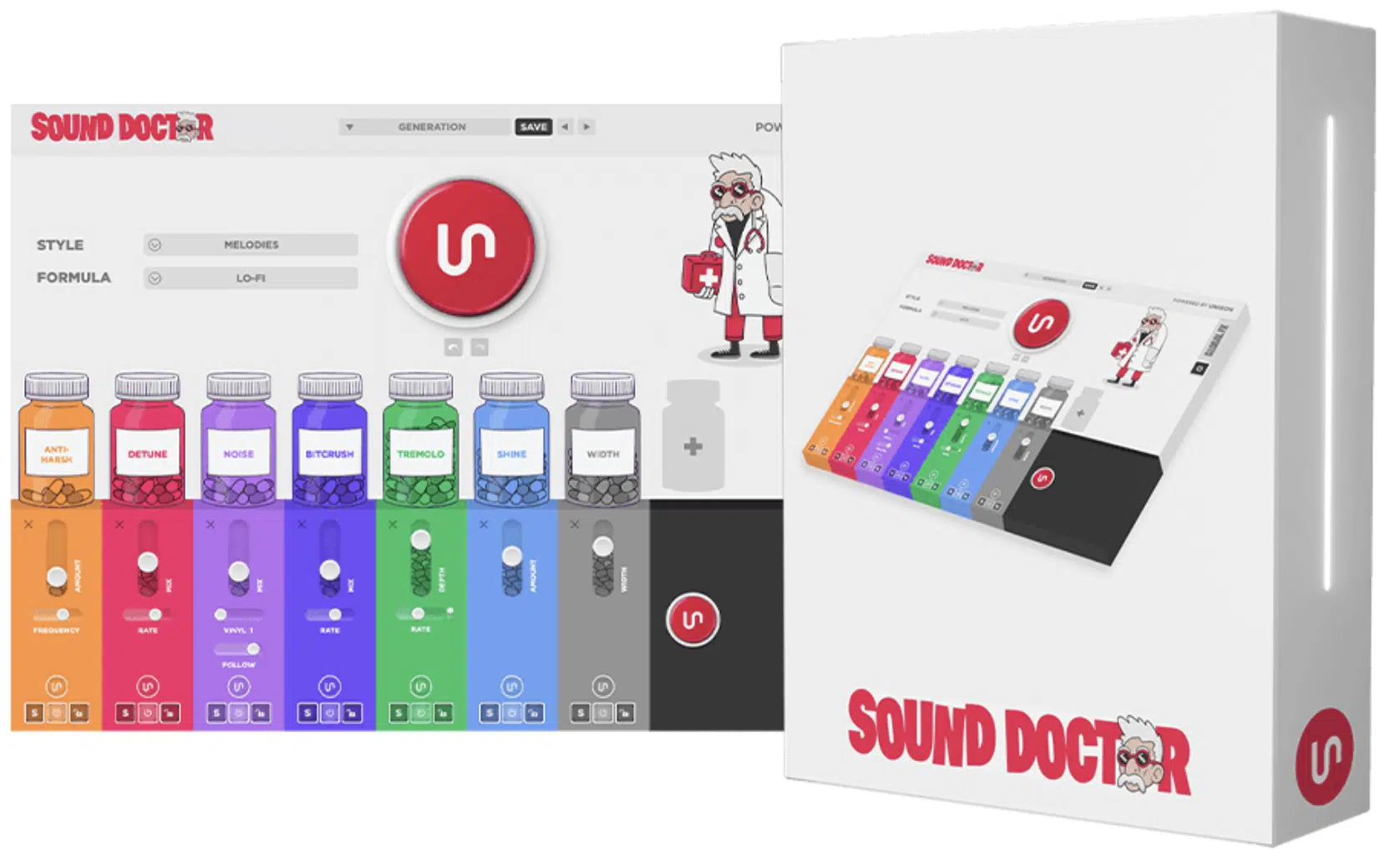
Sound Doctor builds full effect chains based on your selected style — for vocals, drums, melodies, or even full mixes.
It stacks processors like reverb, delay, distortion, and filtering in a way that feels cohesive, saving you time from building FX chains manually.
You can also randomize styles to get experimental or genre-bending results fast.
#7. Mangler
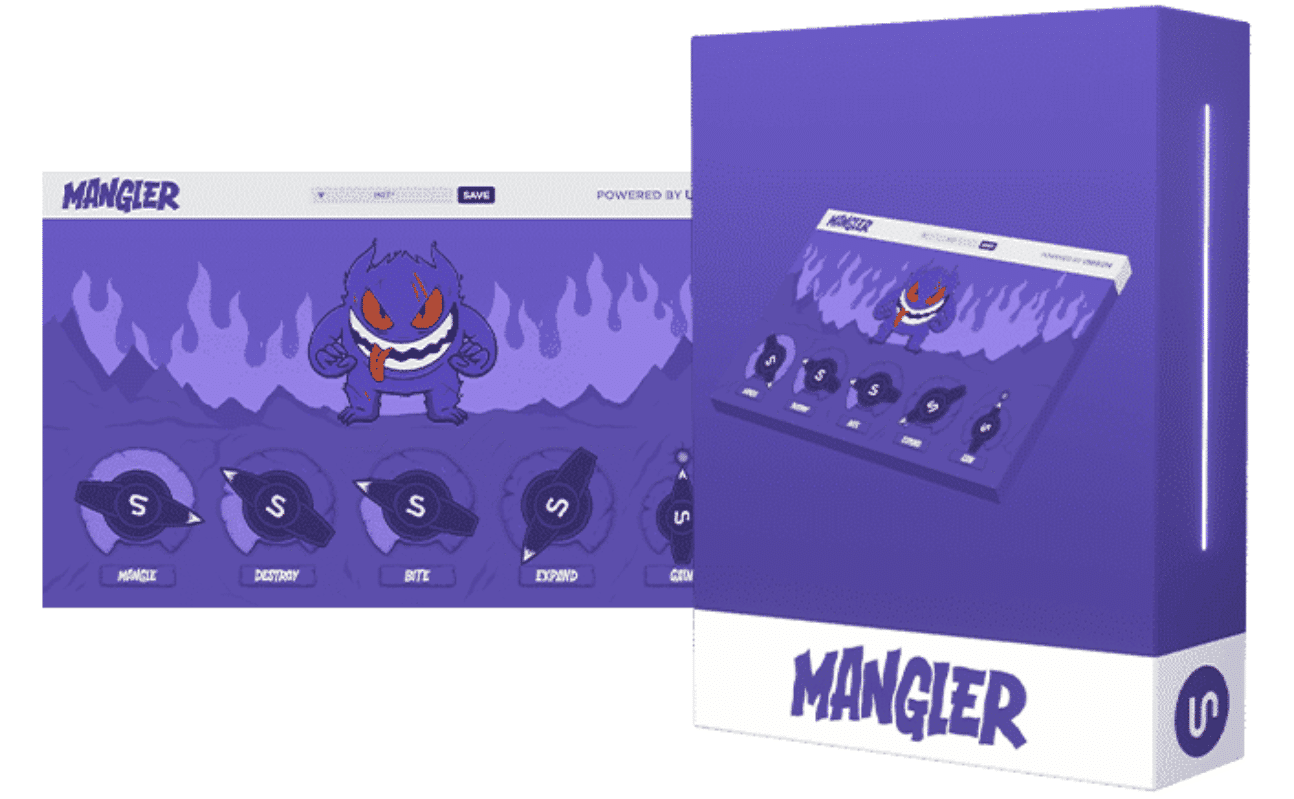
Mangler is a hybrid distortion unit that gives your tracks power, grit, and aggression without destroying clarity.
It combines saturation, bitcrushing, and harmonic distortion in one interface, perfect for synths, bass, or drums that need to stand out in a dense mix.
Each one of these plugins is made with producers in mind (not generic musicians) and that’s why they stand out and are getting so much love from top producers.
Using them will not only help you create faster, but they’ll also give you the edge when it comes to producing high-quality, professional-grade music so you don’t get overlooked.
With how AI is changing the music industry, having this type of creative support in your workflow isn’t just helpful; it’s essential.
Download The Best AI Plugins In The Game
-
Other Key AI Tools
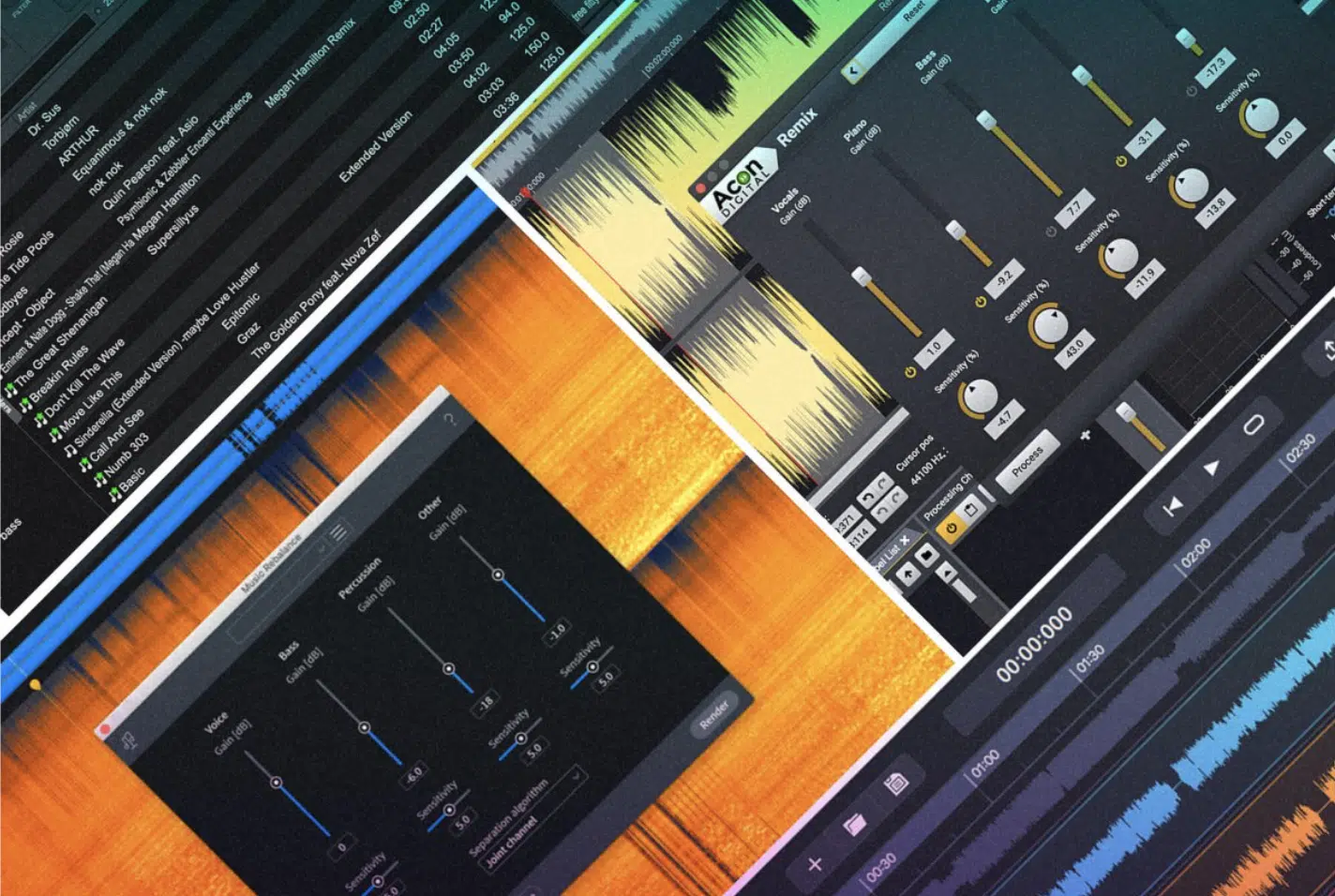
There are also a ton of advanced AI tools that go beyond generating melodies and beats — and these are just as important to keep in your workflow if you want to stay ahead.
For example, stem separation plugins powered by artificial intelligence let you extract vocals, drums, or instruments from existing tracks with crazy precision.
This way, you’re able to easily sample, remix, or study your favorite songs in new ways without clashing with other elements.
Some platforms even let you generate vocals from scratch using AI-generated voice models that sound like real singers, which you can tweak for:
- Phrasing
- Emotion
- Delivery
- Overall vibe
And that’s not even getting into lyric generation plugins that write hooks, verses, and ad-libs in your preferred mood or tempo, just saying.
In addition, you’ve got options that give AI-generated feedback on your song structure, mix clarity, or even your drop arrangement.
AI is also showing up in background music generators, sync libraries, and adaptive audio tools for content creators, streamers, and game developers.
This lets musicians and music producers like us create music for more than just traditional releases, which is awesome.
All of this proves how AI is changing the music industry in new directions every day, expanding not only how we create music but also where it lives, who hears it, and how quickly we can turn musical ideas into finished tracks.
-
AI and Vocal Production: From Tuning to Total Creation
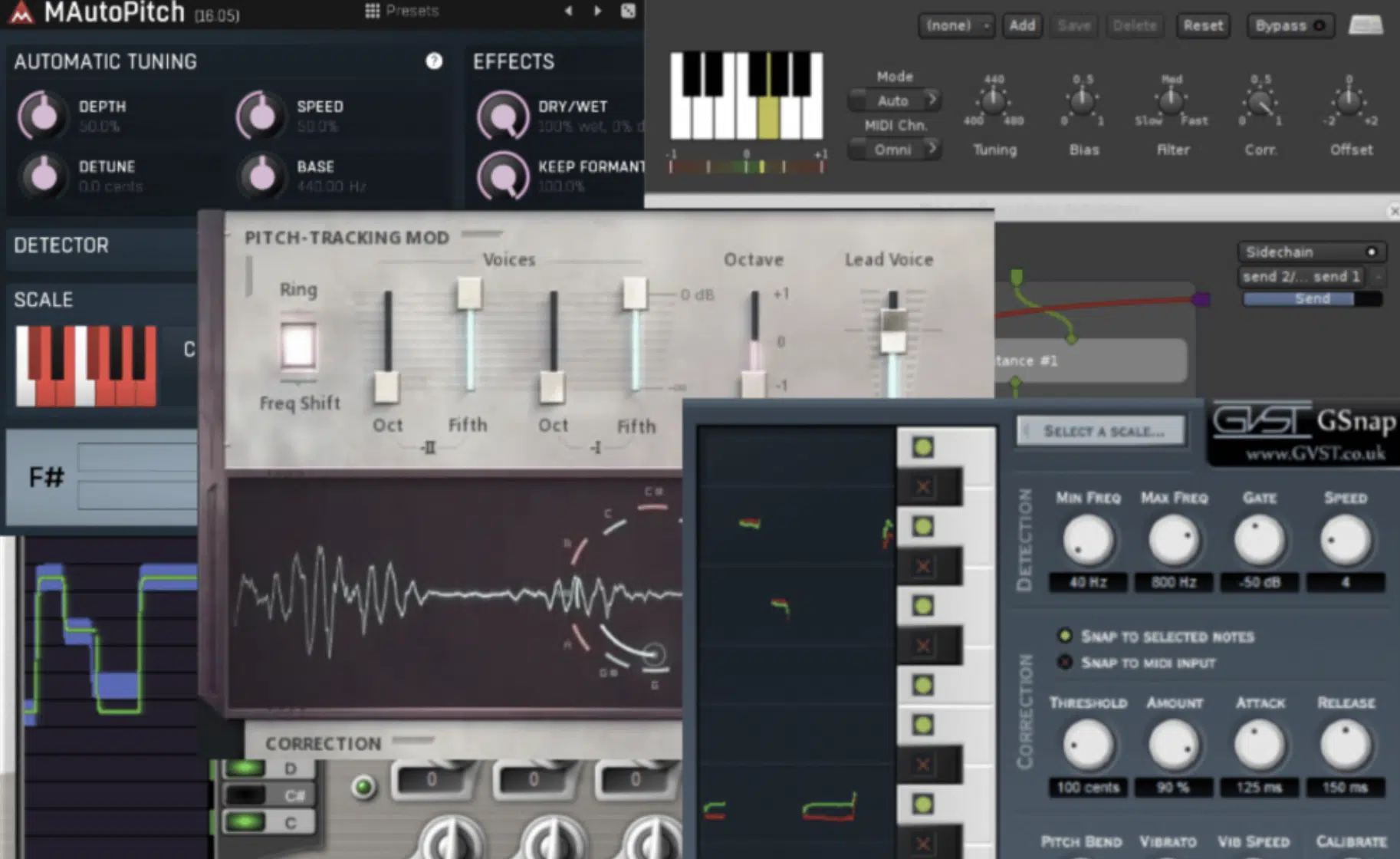
One of the most exciting areas where we’re seeing how AI is changing the music industry is vocal production 一 and no, it’s not just about tuning anymore.
Auto-tuning with intelligence adapts pitch correction based on phrasing, vibrato, and emotion in a way that feels natural instead of robotic.
This can help your vocals blend right into any type of track.
There are also vocal synthesis tools that let you generate vocals from scratch using AI voice models, giving you control over tone, musical style, delivery, and even accent.
And yes, some of them are actually starting to sound eerily close to real singers.
If you’re not working with a vocalist, this gives you a reliable option to still create catchy hooks or demo ideas without waiting on anyone.
And when it comes to songwriting, AI-generated lyrics and hook generators can give you full verses, rhymes, or catchy one-liners based on genre, mood, or tempo.
This is perfect for those moments when you need a push to spark creativity (remember, it’s not about destroying human creativity, it’s about getting the help you need).
These music tools work well when you already have a beat or melody and want a vocal concept that flows with the energy and groove you’ve built.
This area really shows how AI is changing the music industry because it’s letting music producers take control of vocals in ways that were once impossible without a full team.
How AI is Changing Music Discovery & Promotion
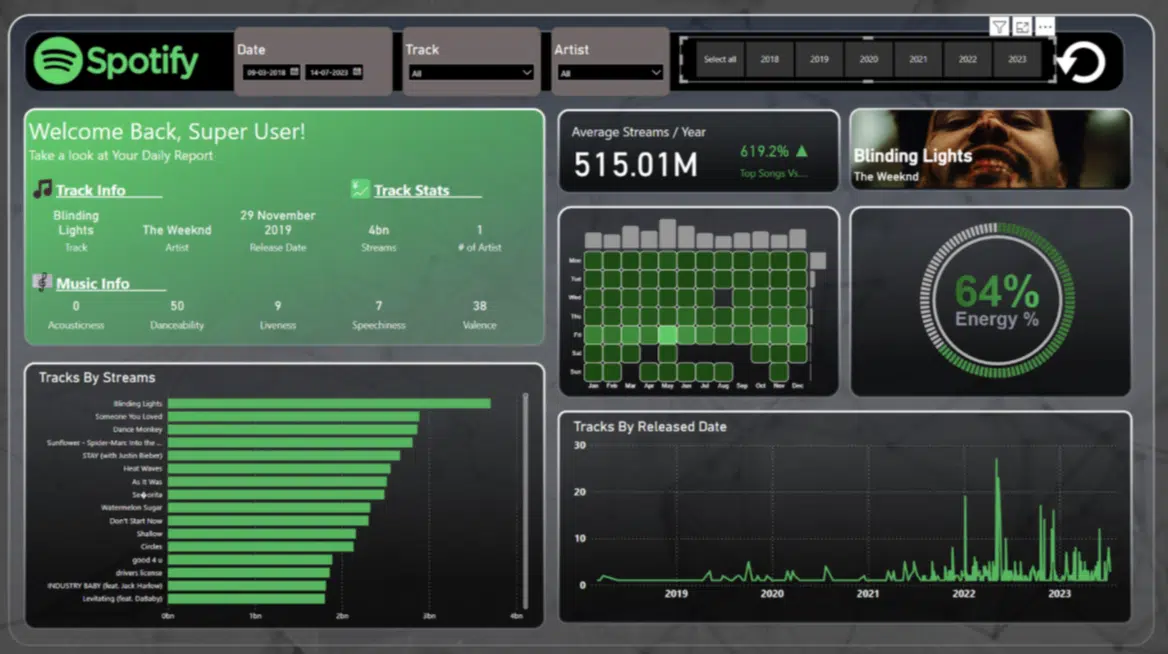
Outside of AI music production, another huge part of how AI is changing the music industry is in how listeners find and connect with new music.
Algorithms now act as the main gatekeepers, basically deciding which songs land on big playlists and what gets pushed to the top of streaming platforms.
That means it’s no longer just about who you know or what label you’re on.
It’s about how well your track fits what the AI believes people want to hear based on their listening habits and behavior.
This also ties into personalized listening and adaptive music, where platforms shape your experience based on mood, genre blending, and even time of day.
This completely changes how your songs get heard.
For music producers, understanding how this works is key if you want to make sure your tracks land in the right ears and don’t just disappear into the void.
These shifts show how AI is changing the music industry from the business side too, giving independent musicians and producers more power…
But only if you understand how to play the game right, that is.
-
Pro Tip: Data-Driven Decisions in Music Creation
AI-powered tools are now helping you make smarter, more creative choices by analyzing:
- Tempo
- Energy
- Arrangement
- Structure
This is in real time based on how other songs perform.
This kind of AI technology can suggest when to place a drop/riser, when to change energy levels, or how long your hook should be.
It all depends on what’s currently working on the top streaming services.
This level of insight is another example of how AI is changing the music industry by shifting the focus toward data-backed creativity instead of just going off instinct.
If you want to stay competitive, using this data to guide your decisions while still keeping your sound personal is the move.
The New Rules: Copyright, Ethics & Ownership in the AI Era
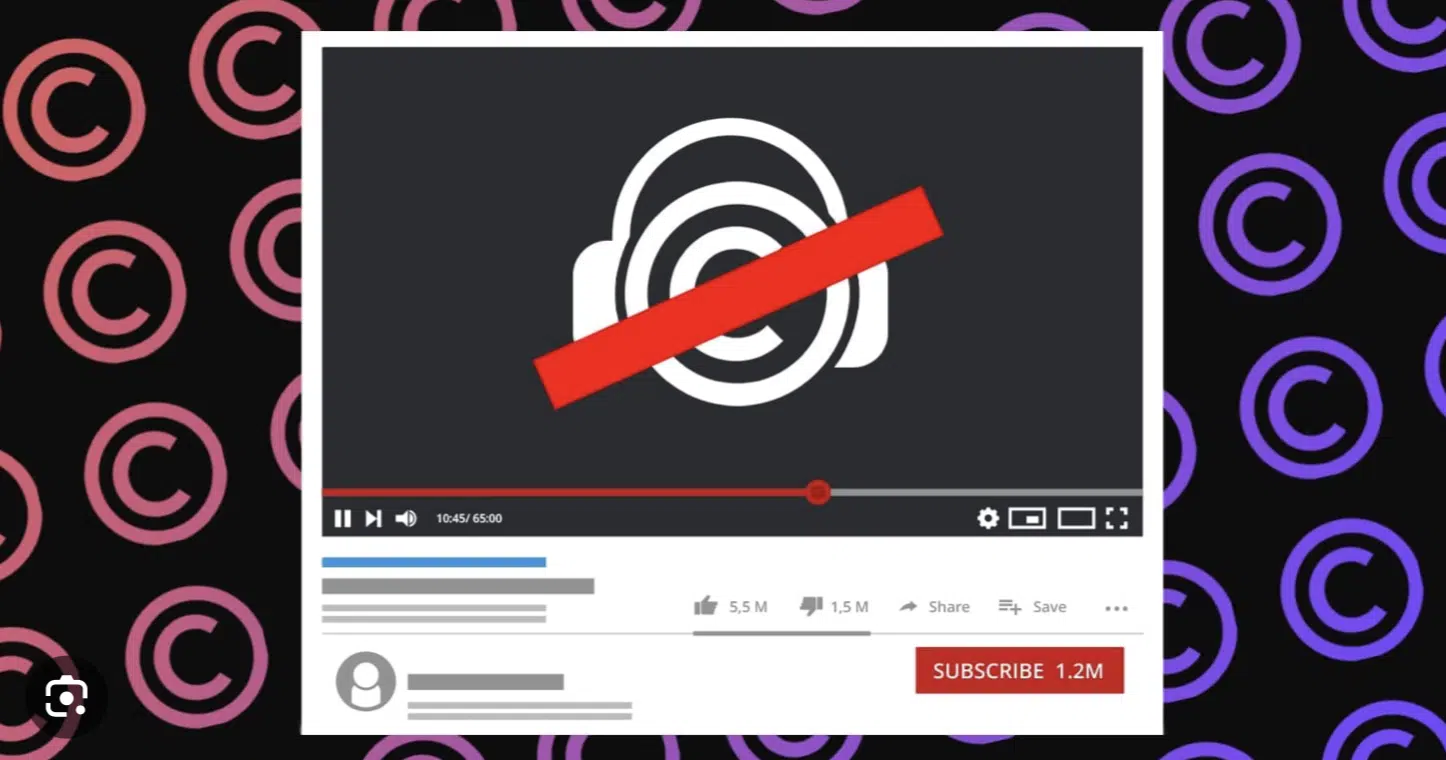
One of the most sensitive parts of how AI is changing the music industry is the legal gray area around:
- Copyright concerns
- Ethics
- Overall ownership
When it comes to AI-generated music and vocals, you have to know these things like the back of your hand, no two ways about it.
Right now, if you use an AI voice model to generate vocals that sound like another artist’s voice (even if it’s not exact) there could be some legal consequences depending on where you distribute music.
This is a big deal if even the vocal tone resembles a recognizable singer.
Universal Music Group has already started cracking down on AI-generated content that mimics artists without consent, which became a major topic after AI was used to recreate John Lennon’s voice in a track.
On top of that, there’s a lot of confusion around whether AI-generated music can even be copyrighted, especially when the AI tool was trained on existing tracks.
Or in regards to copyrighted material from other artists.
These ethical concerns are a big deal if you’re using AI tools trained on datasets that include commercial music, because technically you’re sampling.
Yes, even if you ‘didn’t mean to.’
The safest move in my opinion is to always read the license agreements of the AI tools you’re using.
This way you can make 100% sure the music created doesn’t unintentionally infringe on someone else’s work.
Yes, even if it’s just background music for a YouTube video or a beat placement on a playlist 一 it all matters.
All of this reinforces how AI is changing the music industry not just in how we create, but also in how we protect and share the music we make.
It’s just something every producer should be taking seriously right now because AI in music is here to stay, for sure.
Bonus: Using AI to Get to the Top of Everyone’s Playlists
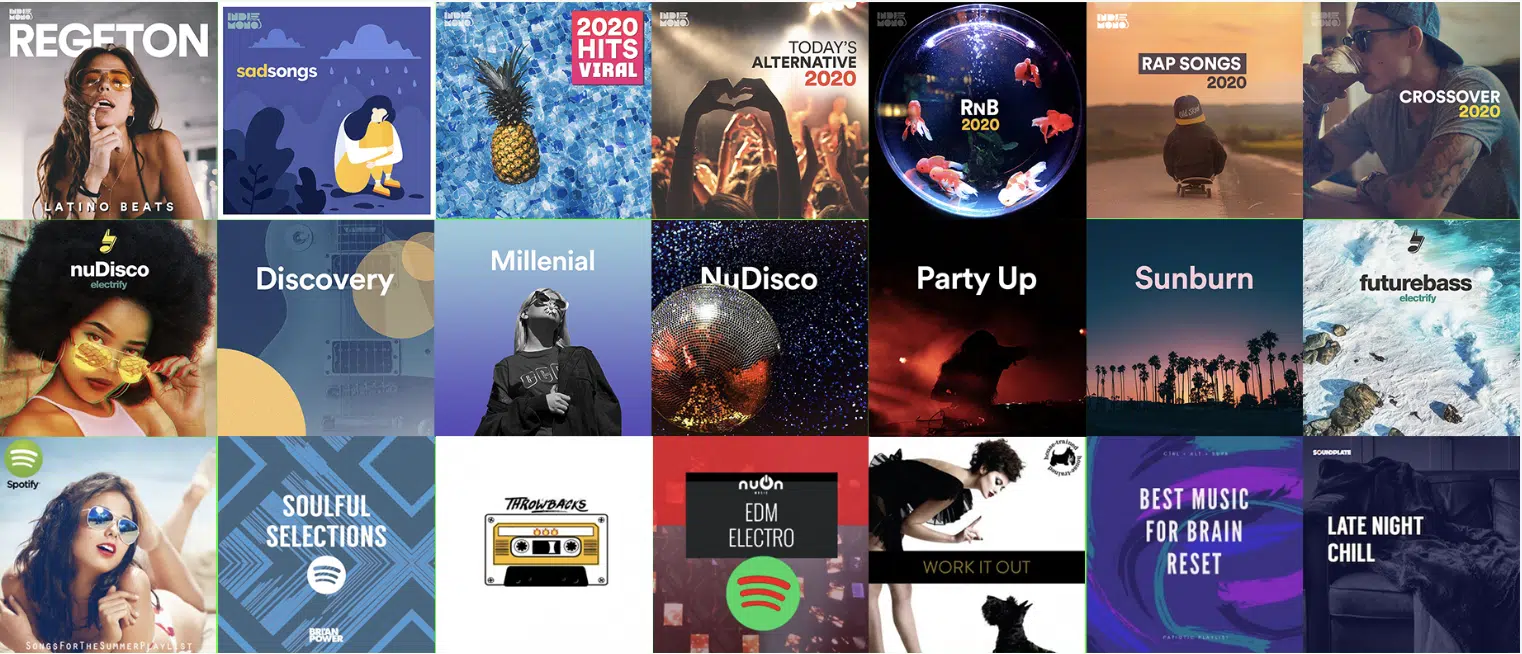
Streaming services now use AI algorithms to decide which tracks make it onto major playlists and which ones do not.
That’s why understanding how AI is changing the music industry is just as important for promotion as it is for production.
One strategy is to create music that fits into personalized playlists by hitting certain energy levels, average song lengths, and intro times that match popular streaming data.
For example, starting vocals before the 15-second mark increases retention and improves playlist performance.
You can also use AI-driven tools that analyze the structure, dynamics, and BPM of top-performing tracks on platforms like Apple Music.
Then, you can use that info to shape your own songs and beats accordingly.
Quick tip: Keeping your drops, transitions, and hooks tight not only improves replay value but also signals to streaming platforms that your track fits what listeners want, based on their listening habits.
For music producers looking to break into the music business or attract record labels with your sick music production skills, this approach can make a huge difference.
It’s all about how your track performs in real-world algorithmic settings, not just how it sounds to A&Rs.
When you combine AI-generated music with smart formatting and deep understanding of how music discovery works today, you’re putting yourself in a much better position to distribute music like a boss and reach the world.
This is exactly how AI is changing the music industry from every angle.
Just remember that using AI in music doesn’t mean replacing your unique style/vibe, it’s about using it to streamline the process.
Final Thoughts
As you now know, AI is no longer some futuristic concept — it’s right here, reshaping how we create, mix, promote, and experience music every single day.
From generating melodies and professional-grade drums to mastering full tracks and creating AI-generated vocals, it is already locked into modern music production.
Whether you’re just starting out or already deep in the game, understanding how AI is changing the music industry gives you a major advantage.
But remember, it’s not just about working faster; it’s about producing better, more impactful music that’s built for today’s streaming-focused world.
The more you integrate smart tools into your workflow while keeping your creative edge intact, the further ahead you’ll be.
And as AI continues evolving, the producers who understand how AI is changing the music industry will be the ones leading the charge (and that can be you!).
Until next time…






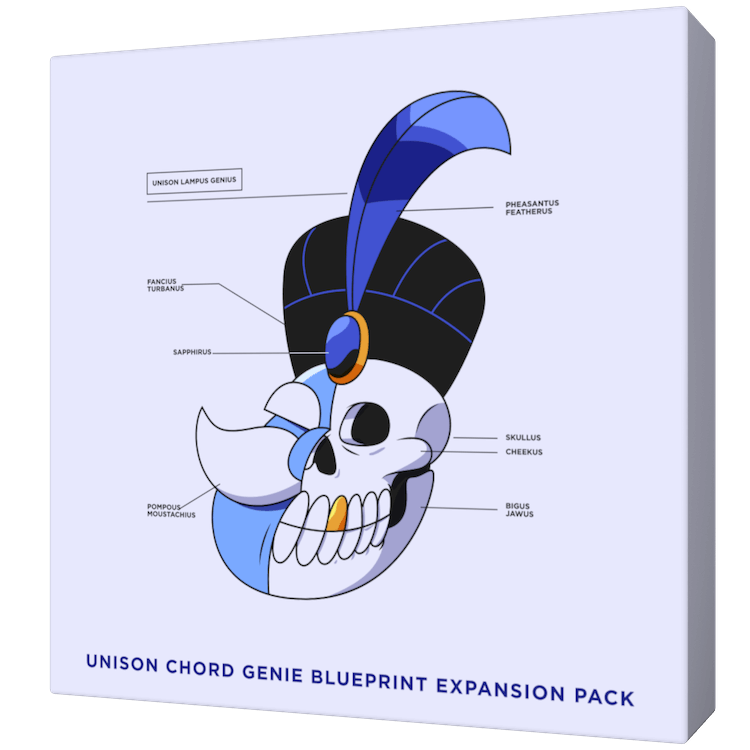
Leave a Reply
You must belogged in to post a comment.